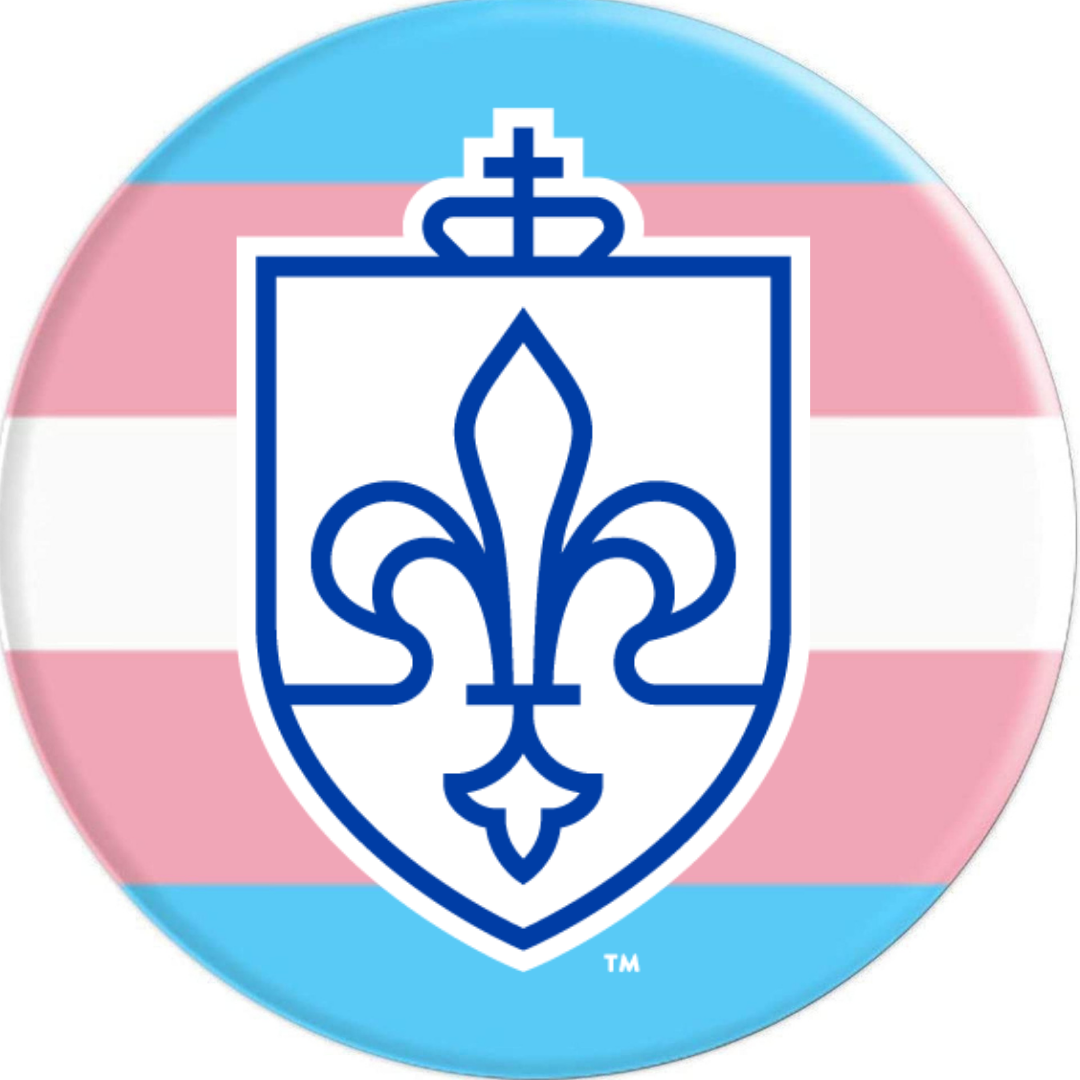SLU Works with Community Organizations to Create Toolkit for Transgender Health Education
An interprofessional team from Saint Louis University (SLU) Transgender Health Collaborative, the Metro Trans Umbrella Group (MTUG) and other local organizations are working together with funding from a Reinert Center for Transformative Teaching and Learning grant to create a toolkit to advance the inclusion of transgender and gender diverse identities in clinical education at SLU. This encompasses both the inclusion and safety of SLU students as well as shaping the way SLU students will ultimately care for transgender and gender diverse patients and clients in the future.
In honor of June being Pride Month, this is the first in a series of three articles
announcing different initiatives from the Transgender Health Collaborative of Saint
Louis University (SLU) that aim to improve healthcare for the LGBTQ+ community. Read
the earlier articles in the series:
SLU Nutrition and Dietetics Awarded Research Grant to Study Strength Training and
Nutrition in Transgender Community
SLU Reinert Speech-Language-Hearing Clinic Offers Gender-Affirming Voice Training
The toolkit will include key terms, an introduction to transgender health in clinical education, clinical practice guidelines, standards of care, how to work with students who express resistance to learning about transgender health and other important aspects of transgender health. In addition to the toolkit, the research team – which includes representatives from SLU Nutrition and Dietetics; Speech, Language and Hearing Sciences; Family and Community Medicine; MTUG; and other local organizations – plans to use its funding to host periodic lunch and learn workshops to teach about topics in transgender health.
The project team leader for this grant is Nutrition and Dietetics Assistant Professor Whitney Linsenmeyer, Ph.D., RD, LD. Dr. Linsenmeyer spoke about the impact she believes the toolkit can have on both the transgender health and clinical education community.
“Our vision is to train students, who will one day be healthcare providers, to provide excellent care for their transgender patients and clients. We aim to manifest transgender healthcare that is routine, accessible, respectful, and considers the whole person,” Dr. Linsenmeyer said. “Transgender health is rarely covered in clinical education programs; how can we expect students to have these skills if we don't train them?”
Dr. Linsenmeyer went on to explain how crucial it was to create the transgender healthcare toolkit with assistance and input from other community leaders.
“We wouldn't want to undertake this work without our local partners. The first strategy of the toolkit is to ‘Position transgender individuals as the authoritative voices on their own lived experiences in healthcare’ - that applies to how we train our students, as well as how we take on projects of this nature,” Dr. Linsenmeyer said. “Our team of collaborators are brilliant, creative, and so full of heart. We are lucky to call them partners in this work.”
MTUG Outreach Coordinator Beth Gombos talked about how important this toolkit can be for the transgender community, but also went on to explain how it will hopefully just be an early step in focusing on how to work with many different unique communities.
“This toolkit is part of a bigger movement in social justice to create better systems for our most marginalized populations,” Gombos said. “I imagine this toolkit to be the first of many versions and/or layers of change in higher education and medical services.”
Saint Louis University is a Catholic, Jesuit institution that values academic excellence, life-changing research, compassionate health care, and a strong commitment to faith and service. Founded in 1818, the University fosters the intellectual and character development of nearly 13,000 students on two campuses in St. Louis and Madrid, Spain. Building on a legacy of more than 200 years, Saint Louis University continues to move forward with an unwavering commitment to a higher purpose, a greater good.
